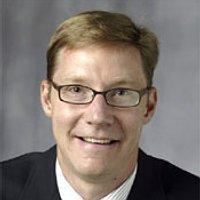event
CANCELLED: Warren Grill: Research Seminar, BME Chair Candidate
Primary tabs
** THIS EVENT HAS BEEN CANCELLED **
Warren M. Grill, Ph.D.
Edmund T. Pratt, Jr. School Distinguished Professor of Biomedical Engineering at Duke University
"Temporal Pattern of Stimulation As a New Dimension of Therapeutic Innovation"
Tuesday, November 22
2:00 PM
Emory University – HSRB E160;
Video streamed to Georgia Tech - Whitaker McIntire Room 3115
Electrical stimulation for treatment of neurological disorders, diseases, or injuries has relied on controlling the effects of stimulation through selection of stimulation amplitude, pulse duration, and pulse repetition frequency. I introduce a new parameter dimension – the temporal pattern of stimulation – and demonstrate how model-based design of temporal patterns of stimulation increases the efficacy and energy efficiency of neural stimulation therapies. Our finding that the effects of deep brain stimulation (DBS) were dependent on the temporal pattern of stimulation [Dorval et al. 2010], in addition to the frequency of stimulation, inspired the design of novel temporal patterns of DBS. Patterns were developed that treat the symptoms of Parkinson’s disease more effectively than conventional regularly patterned DBS [Brocker et al. 2013a] or enable equivalent treatment of symptoms but with a substantial reduction in the required energy [Brocker 2013b]. This latter innovation is an important consideration for the size, recharge frequency, and battery life of implanted pulse generators. This concept was then extended to develop novel temporal patterns of epidural spinal cord stimulation for the treatment of chronic pain. Collectively, the results demonstrate the utility of a new dimension of neural stimulation parameters – the timing between stimulation pulses – to increase the efficacy and efficiency of neural stimulation therapies.
ACKNOWLEDGMENTS
Collaborators on our work on DBS include David Brocker, Brandon Swan, and Dennis Turner at Duke University, Robert Gross at Emory University, and Stephen Tatter at Wake Forest Baptist Medical Center, and this work is supported by NIH grant R37 NS040894. Collaborators on our work on spinal cord stimulation include Tianhe Zhang and Nate Crosby at Duke and John Janik at Stryker Inc, and this work is supported by a grant from Stryker Inc.
Status
- Workflow status: Published
- Created by: Walter Rich
- Created: 11/14/2016
- Modified By: Fletcher Moore
- Modified: 04/13/2017
Categories
Keywords
Target Audience

